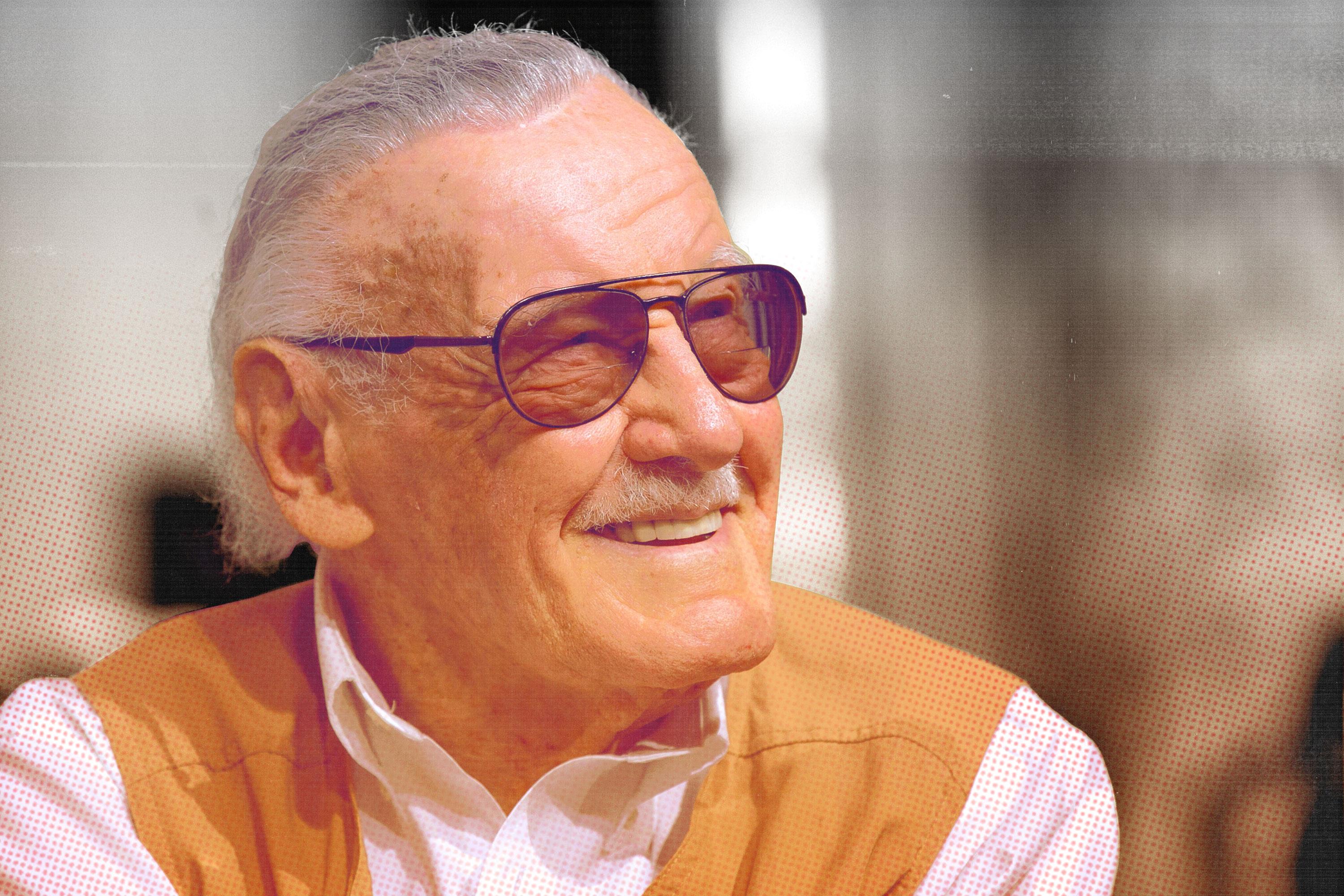
Stan Lee, a singular and successful figure in the comic book world, died Monday at age 95, as first reported by TMZ.
Lee, along with frequent collaborator Jack Kirby, was responsible for creating and popularizing superheroes like the Fantastic Four, Thor, the Incredible Hulk, Iron Man, Black Panther, the Avengers, the X-Men, and the Inhumans. He also created Spider-Man and Doctor Strange with Steve Ditko. Many of these characters, who thrived in comic strips during Marvel’s “Silver Age” from the late ’50s into the early ’70s, later became the bedrock of Disney’s Marvel Cinematic Universe. (Disney purchased Marvel Entertainment for $4 billion in 2009.) Lee began writing for Timely Comics—which would become Marvel Comics—in 1939 and stayed with the company for decades, outside of a three-year stint with the U.S. military during World War II.
The superheroes Lee created alongside Kirby and Ditko were frequently praised for possessing relatable characteristics and noteworthy flaws. Whereas the biggest superheroes from DC Comics’ slate, like Superman, were mythic in their conception, Lee’s heroes were flawed, oftentimes struggling internally while saving the world from total chaos—whether it’s Spider-Man learning responsibility, maturity, and how to make ends meet in New York City, or the X-Men fighting for acceptance and equal rights. One of Lee’s most iconic achievements as a comics writer, however, came when he defied the Comics Code Authority by publishing an explicitly antidrug message in an installment of his Amazing Spider-Man comic in 1971. The decision elicited enough buzz in the comics world for the governing body to adjust its rules and guidelines, thereby allowing more explicit sociopolitical messaging on comic pages in the future.
Lee stepped away from the editorial side of Marvel in the late ’70s to try to adapt the company’s material for television and film. Despite the four-year run of the CBS drama The Incredible Hulk in the late ’70s and early ’80s, Lee didn’t find immediate success in Hollywood. His internet-based company, Stan Lee Media, opened in 1998 and within three years filed Chapter 11 bankruptcy when it was discovered that Lee’s partners at the company engaged in stock manipulation (Lee himself was never charged). But Lee’s perseverance in Hollywood eventually bore fruit: Marvel superheroes have flooded television and film, with characters as far-flung as the Guardians of the Galaxy and Captain Marvel lining up their own cinematic trilogies. Disney’s Marvel Cinematic Universe, now 20 films deep with several more in the pipeline, is a multibillion-dollar enterprise in and of itself. Lee has also made memorable cameos in dozens of Marvel films—from a mailman to a security guard to an astronaut lost on a distant planet.
Lee’s imprint on the comics industry is unparalleled, especially as the public perception of comics has shifted. His creations, once seen as buzzy ’60s counterculture, are now responsible for the most lucrative franchises in Hollywood. Superheroes, and the characters Lee helped create to inspire and entertain people, are bigger than ever before. “I suppose I have come to realize that entertainment is not easily dismissed,” he told the Chicago Tribune in 2014. “Beyond the meaning (of a work of art), it is important to people. Without it, lives can be dull. Singing a song, playing sports—anything that entertains, that takes people away from their own problems, is good. Sounds obvious, but it’s good to be reminded.”

